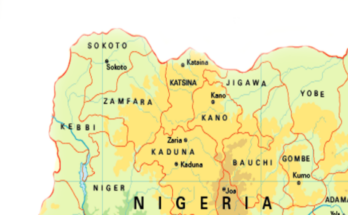Despite Nigeria’s vast natural endowments, it is sad that over ninety percent of its citizens, mainly youths are wallowing in penury. This may not be unconnected with the lackadaisical attitude of succeeding leadership, coupled with economic policies that have no meaningful impact.
In trying to tackle poverty and unemployment, there are of course enduring policies that ought to have been sharpened collectively and patriotically straightened by sustaining and revamping a national anti-poverty strategy with a well-defined thrust on improving incomes. This, if properly implemented, will go a long way in alleviating poverty, even if the private sector is not doing so well. A sincere war on poverty should first be prioritized, with a clear goal to remove it permanently and create fuller employment, instead of mere political campaign rhetoric and other slogans, with pretence on how to tackle poverty and unemployment, which are not sincere solutions to the problems at stake.
From a clear national perspective, it is suggestible that let there be a programme with full national outlook, in which it will be the cutting edge and a plan against poverty and if fully implemented and successfully maintained and within the years under review, it shall then be restructured and strengthened in the light of achievements and experience recorded, because it has conformed with the desired objectives. Along with the programmes, should be a number one point agenda, which will deal with various facets coming under the government’s strategy for a direct attack first on rural poverty. This will greatly address the drift of rural dwellers to urban areas in search of the so-called “greener pasture.” To ensure that the various programmes aimed at alleviating poverty and tackling unemployment nationwide, the Federal Government should ensure that there is commitment and a sincerity of purpose on those assigned to see to the efficient workability of the various programmes, which should reach all the nooks and cranny of the nation without any stance of political or any ethnic sentiment.
It is suggestible also that there should also be a correlation between various rural development programmes with a view to improving productivity and production, so as to expand rural employment. In this context, the National Poverty Eradication Programme introduced at the takeoff of the present democratic dispensation known as NAPEP, which sidelined the National Directorate of Employment (NDE), the first employment programme introduced during the military era and of recent the present SURE-P and other programmes aimed at alleviating poverty and unemployment, should assume great significance. Furthermore, the qualitative aspect of proper implementation of these programmes still requires attention.
With a view to vigorously pursuing the above objectives, slight changes in the administration of the various programmes may be introduced. To create an enduring impact, state and local governments, no matter under which political party they may belong, apart from the ruling party, the federal government should delegate them power to sanction schemes and projects, so as to quicken the pace of the various programmes in order to eliminate unnecessary bottlenecks created through shoddy manipulations, mostly to divert funds meant for such programmes into private pockets of political kingpins. Voluntary Organizations should also be encouraged to play key roles in the effective implementation of the various programmes. Separately, the programmes should provide funds for projects to be taken up by such organizations aimed at poverty alleviation and youth employment.
Musa Auta Gadam,
Department of Mass Communication,
University of Maiduguri, Maiduguri



